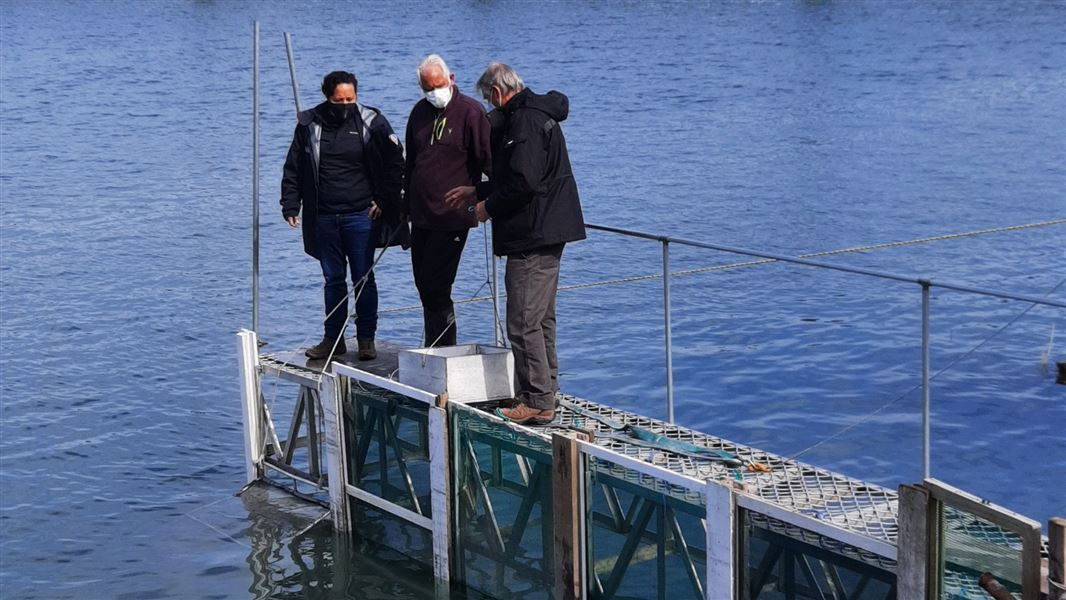Archived content: This media release was accurate on the date of publication.
Date: 24 September 2021 Source: Office of the Minister of Conservation
Sustaining South Westland is an extension of an initiative set up last year by a regional alliance of local businesses and government agencies to provide nature based jobs in Glacier country, an area of the South Island that relies heavily on tourism.
“The initial project received funding of $2.5 million. An additional investment of $1.28 million means the great work they have been doing to upgrade and restore some of New Zealand’s most scenic and ecologically important sites can continue,” Kiri Allan said.
“Three other projects we’re supporting with new funding will provide work and training opportunities for up to 45 locals across the West Coast region, delivering a much-needed boost to the economy as well as protecting a number of irreplaceable ecosystems.
“A major regional council-led clean-up will improve and protect whitebait spawning sites through weed control and fencing, while an ambitious venture across thousands of hectares in Westland echoes the focus of Predator Free South Westland, but looks to eliminate plant pests rather than animal ones.
“Finally there’s a really exciting project supported by eight landowners to fence off riparian margins and plant some 195,000 plants along the Arahura River catchment, which is home to 17 species of native fish.
“This is an intergenerational initiative which offers training towards formal horticulture and farm fencing certificates, both of which teach skills that can be applied to a wide range of jobs and careers in conservation and beyond.
“Like all the Jobs for Nature projects it is about placing an emphasis on doing as much as we can today to ensure an environmentally richer landscape tomorrow,” Kiri Allan said.
West Coast / Tasman MP Damien O’Connor welcomed the investment: “This investment in job creation and environmental protection comes at a time when COVID-19 has really hit the Coast hard. These initiatives will enhance the West Coast as a destination of extraordinary beauty in a truly unique part of the world.”
Projects announced today
Sustainable Wild Whitebait Fishery
Whitebait populations on the West Coast will be given a boost as part of a $1.36m project which will create 13 jobs over the next two years.
“Whitebait face a range of threats and pressures, including habitat loss, poor water quality, and fishing pressure. All four whitebait species that are threatened or at risk will benefit from this habitat enhancement mahi.”
The West Coast Regional Council is leading the project to improve whitebait spawning habitat by removing weeds from 25 streams. Thirteen kilometres of fencing will be installed along 18 rivers, estuaries, and lagoons.
“The project will enhance whitebait spawning sites through weed control and fencing. This will keep stock out of the rivers, and the water free of weeds such as willows, which can stop whitebait from moving between spawning sites and adult habitat.
“Hokitika residents will see the benefits of this mahi in their own backyard. A restoration project at Wadeson Island will create up to 3 km of new river channels for adult inanga to live in. Weed control, tree planting and earthmoving will enhance 18 ha of nearby wetlands for native birds and improve spawning habitat for whitebait species.”
Weed Free Tai Poutini
An ambitious project to eliminate all significant land-based weeds from Westland will provide work for up to 21 people.
The $3.3m project will see workers searching for and removing weeds from approximately 30,000ha of public conservation land from the Taramakau River in the north, to Barn Bay in the south, and from the mountains to the sea.
Led by Development West Coast, Weed Free Te Tai Poutini also aims to stop weeds from spreading and taking hold within the western alpine areas of Arthurs Pass National Park.
“This project will protect and enhance the relatively weed-free status of Westland. The project partners will also work on private land to detect potential infestations before they spread to conservation areas,” Kiri Allan said.
Sustaining the South Westland Community
The Kaimahi for Nature project was established rapidly in 2020 to support the businesses of the heavily tourism-dependent area of South Westland following the border closure. $1.28 million has been committed to continue this support for the next two years, enabling 40 businesses to employ their staff to deliver conservation work tasks when there is not enough tourism work to support full time employment. This project will provide around 100 people stable employment in their local community. Alliance members are Te Runanga o Ngati Waewae, Te Runanga o Makaawhio, West Coast Regional Council, the DOC and Development West Coast.
Arahura River restoration
The Arahura Strategic Waterway Restoration project, led by Māwhera Incorporation, focuses on freshwater restoration along the riparian margins of a mix of dairy and beef farms in the Arahura Catchment.
Eight landowners are supporting the project, working with Māwhera Incorporation on fencing and planting some 195,000 plants across the catchment which is home to 17 species of native fish, including inanga which spawn in the lower reaches.
“This is an intergenerational project, supported by $3m of Jobs for Nature funding, aimed at protecting and restoring the indigenous riparian, wetland and forest habitats of the Arahura,” says Kiri Allan.
Tai Poutini Polytechnic will provide training support including industry standard qualifications, while a Māwhera Incorporation-led fencing and planting team will provide on the job training.
The project is part of a wider catchment approach to restoration. The Provincial Growth Fund has invested $2.8m into planting and fencing within the lower catchment. The Māwhera Incorporation project will build on this work supporting restoration of the entire catchment area.
The Arahura is one of DOC’s priority rivers under the Ngā Awa programme funded through Budget 2018.
Contact
For media enquiries contact:
Email: media@doc.govt.nz
